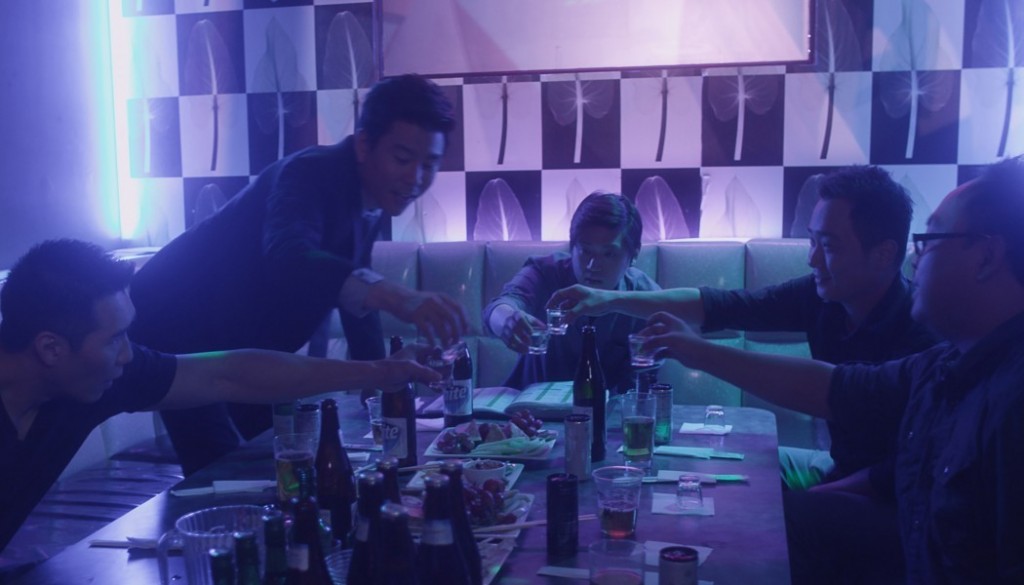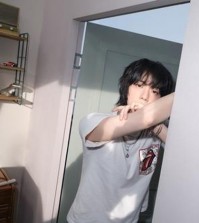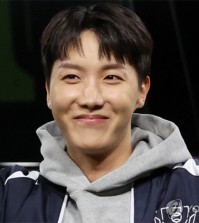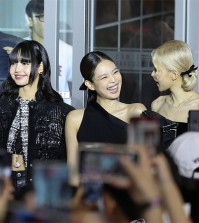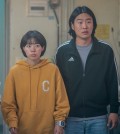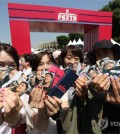- California Assembly OKs highest minimum wage in nation
- S. Korea unveils first graphic cigarette warnings
- US joins with South Korea, Japan in bid to deter North Korea
- LPGA golfer Chun In-gee finally back in action
- S. Korea won’t be top seed in final World Cup qualification round
- US men’s soccer misses 2nd straight Olympics
- US back on track in qualifying with 4-0 win over Guatemala
- High-intensity workout injuries spawn cottage industry
- CDC expands range of Zika mosquitoes into parts of Northeast
- Who knew? ‘The Walking Dead’ is helping families connect
‘K-Town Cowboys’ Director DPD shares love for hometown on silver screen

Daniel “DPD” Park, director of “K-Town Cowboys,” inside Cafe Mak in Koreatown, Los Angeles. (Tae Hong/Korea Times)
By Tae Hong
“Look at you guys,” a first-time visitor to Los Angeles’ nightlife-friendly Koreatown once said more than a decade ago, observing a group of his friends — among them Daniel “DPD” Park — as they traveled from hotspot to hotspot through the city’s colorful array of Korean establishments, “You guys are like K-Town cowboys or something.”
K-Town cowboys? The phrase stuck with Park.
“[My friend] used that word because K-Town felt like the Wild West to him, this anything-can-go neighborhood,” Park said. “He saw us as cowboys navigating through that Wild West.”
Years later, he would partner as director with screenwriter Danny Cho and use it to title a well-received web series, a rollicking saga of friends partying through K-Town as they knew it. Its recent film adaptation premiered at SXSW in March and will show in its hometown for the first time for the Los Angeles Asian Pacific Film Festival inside Aratani Theater on April 25.
“K-Town Cowboys” is a rarity, a feature film starring a main cast of Korean Americans. Following a group of five bar-hopping buddies (Shane Yoon, Sunn Wee, Peter Jae, Danny Cho, Bobby Choy) as they come to terms with the personal hurdles life begins throwing at them at the precipice of responsible adulthood, the pic offers a grown-up version of the crass, soju-soaked YouTube series.
It’s also a wholly community-based project that places its roots where its mouth is.
As was the case with the web series, the film uses real Koreatown locations — bars, restaurants, karaoke spots, clubs — with the help of neighborhood business owners, who understood the effort and often let the crew use the space free of charge. K-Town locals, friends and family of staff, were brought on as extras.
Even cameos were looking to give back to the community. Actors Ken Jeong and Daniel Dae Kim separately contacted Park and volunteered to lend their hands to the project. Jeong took on an executive producer role, and Kim took it upon himself to hop on a plane from his home in Hawaii to Los Angeles to participate in filming. Kim Young-chul, a Korean comedian with ties to Cho, popped in for an appearance as well.
“[Jeong and Kim] thought, when they were doing their own projects, there wasn’t anybody there to help them. They told themselves that if they found themselves in that position, they would help. And this was one of those moments,” Park said. “We’re so very, very thankful to them, and to K-Town.”
K-Town is, was and always will be a place of mystery and wonder to Park. It’s his place of birth, and the place where he spent a good chunk of his childhood despite his parents’ home in the Valley.
Before the onset of “hip” Korean culture, salivating Yelp reviews and countless magazine/television/online spotlights, Koreatown was home to a tough neighborhood rampant with gang activity, the site of the 1992 Los Angeles riots. It was home to hundreds of storefronts bearing only Korean letters, for Korean customers.
It was home, in the early 2000s, to shows in which Park played guitar in a local band. It was here that he rubbed shoulders with Korean Americans who would go on to form building blocks of Asian American media, from Kollaboration founder Paul Kim to actor John Cho, then also an aspiring musician, to Far East Movement, with whom he would later work as creative director.
“It was a social, political area,” Park said. “Everybody in that scene had one thing in common: They all felt like, you’re not going to be able to change the way Asians are perceived unless it’s done through media.”
In some ways, “K-Town Cowboys” is a product of that thought. But it’s also not, Park points out, just a niche film focused on the headlining Asian faces. Forget the “Asian American movie” label — it’s a story about friendship.
“[Friendship] is a universal story,” Park said. “The vision was always about capturing that. Coming out of it, it’s funny, because we really are friends, the main cast and me.”
The film is all about art imitating life — what started as a series filmed with a group of friends continued as a movie with a group of friends. The main cast is comprised mostly of non-actors; the story is an exaggeration on the cast’s real lives.
Park was inspired by the 1995 film “Kids,” which included a cast partly comprising actual New York City kids from the streets.
“That’s how they got such a natural performance. That’s why ["K-Town"] chemistry and the camaraderie is so good,” he said.
The film became somewhat of a revelation for Park. Always the creative type, he’s a trained illustrator and designer, a musician and a graphic novelist. The venture into directing only came with the creation of the web series. Even then, directing actors wasn’t the point. He just wanted to tell a story.
“I’m finally, now, as of 2015, into the idea of directing actors. I was about the visual and stylistic approach. I’m now for the first time passionate about directing,” Park said.
Directing’s still not his day job. The biggest chunk of his time is dedicated to working with artists at Transparent Agency as creative director.
But his eyes have settled on more filmmaking — more specifically, stories about Los Angeles and its countless pockets of neighborhoods and people.
In 2010, “K-Town Cowboys” the web series galloped into the LA APFF to win the Special Jury Award for Best First Feature. It’s back this year as a feature-length film and as the festival’s centerpiece presentation.
Park has called the effort a “tour guide of Koreatown.” He’s joking — kind of. While the focus is more on the buddies than the ‘hood, nuances of Korean culture are scattered all over the film.
“I keep joking about it, that the film is a commercial for a K-Town tourism group we’re going to start,” he laughed. “K-Tours, you know? Come on through.”
Welcome to the Wild, Wild West.
“K-Town Cowboys” will screen April 25 at Aratani Theatre and April 29 at CGV Cinemas at Madang Plaza. Visit asianfilmfestla.org for more information.








